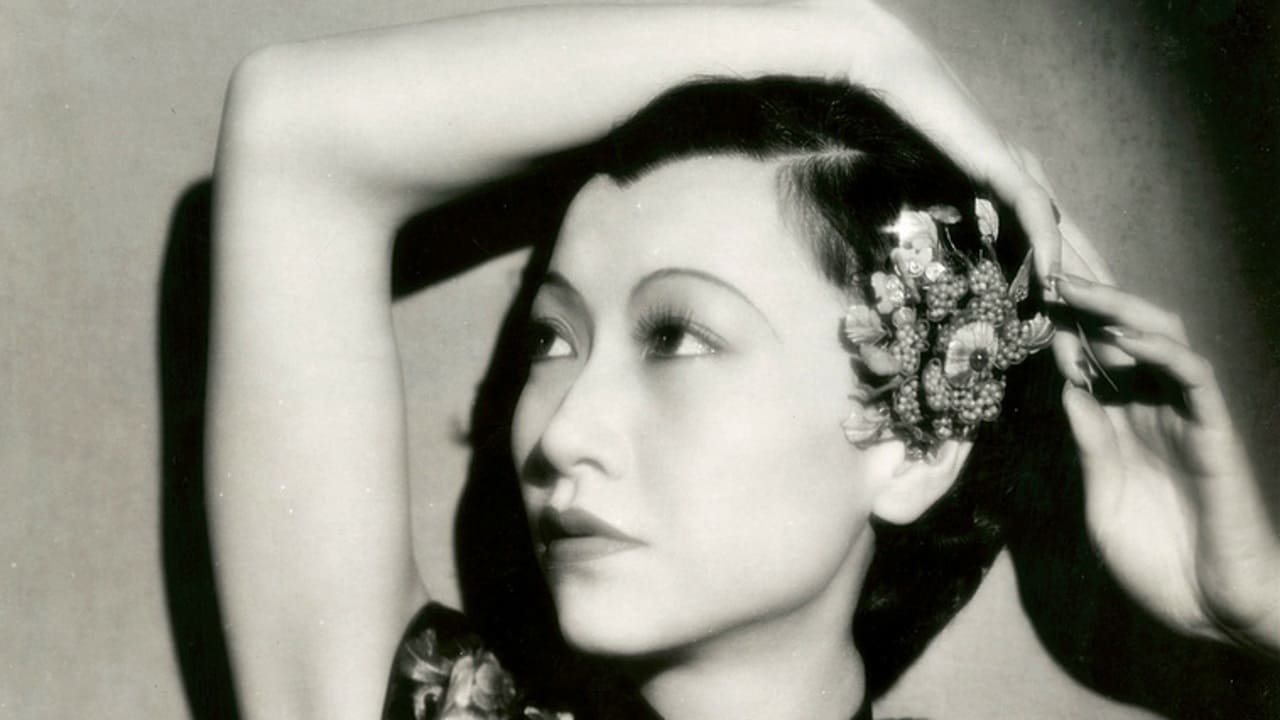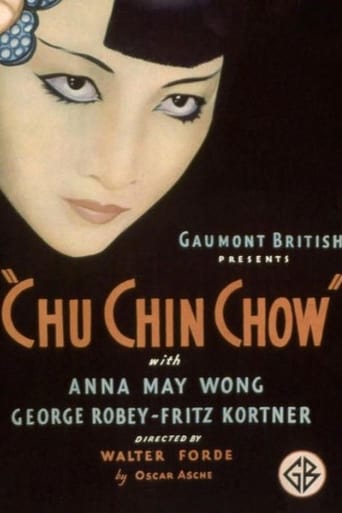

Chu Chin Chow was a well-known stage musical that started during the First World War years and lasted through the twenties and the thirties. Then mention of it suddenly stopped and was heard of no more. Of the songs used in the musical, only the Shoemaker's Song was catchy enough to survive outside the musical, and was covered by all kinds of musicians from trad jazz bands to Paul Robeson.As others have said, the musical is set in Baghdad and is a variant of Ali Baba and the Forty Thieves. The costumes are exaggerated, with grotesque turbans and fezzes.What is unusual for a British film is that the background music is almost non-stop. Often the background music has nothing to do with what is happening in the scene, and is thus more like Muzak in a supermarket or an elevator. This was sometimes done in early thirties films by First National/Warner Brothers. This is the first time I have encountered this in a British film. The orchestration is adventurous and the higher pitches feature unusual instruments. These include domras that tremolo in the string section, and - soloing in the woodwind - are a sopranino recorder, and even an ocarina, to accentuate clownishness. As big jars, each containing a thief, are rolled into a pit, we hear the timpani making a thunderous noise - inappropriate due to the size of the jars, but unbelievably effective.With one exception, the singers are not very good. The exception is the Australian basso profondo, Malcolm McEacharn, who is billed as "Jetsam," because he was a member of the Flotsam and Jetsam duo. An exceptionally rich and powerful voice that can reach down, down, down to depths that a basso cantate like myself can only dream about. I have never seen anything quite like this in a British film of the period.
... View MoreThis film would have been shown in New Zealand when I was about 7 or 8 I'm now 78. There are some films from that era that stand out in my mind and this is one of them. I must have seen thousands of films since, 95% now forgotten but I always remembered Chu Chin Chow and have waited for it in vain on TCM. Checked it out on Amazon and there it was on DVD, it arrived this morning and I have watched it in full. I'm not disappointed. It is hard to believe that this was a British production because it is way up there with the best of the Americans of the era. George Robey is great and Anna May Wong a gem. It is a DVD I'll watch more than once.
... View MoreThink of Michael Powell/the Korda brothers' Thief of Bagdad but better, even! An Arabian nights adventure but no stops for spectacle, rather a seamless story and an unrestrained telling almost unprecedented in British film. The sets are wonderful, there are songs popping up in the least expected places, the direction has a verve rarely seen elsewhere in British film and the story is adapted with guts and no fear that restraint (any) must be employed, as it usually is, it seems neccesarily, in British film. It's a film which goes all the way in all departments, astonishing for any age let alone for 1934, just a year after Korda's Private Lives of Henry VIII had opened things up a bit for Britfilm.
... View MoreSumptuous British Gainsborough Pictures production with a huge budget for its day ($500K) plays a lot like a cross between THE THIEF OF BAGHDAD and KISMET all bumbling through meters of silk and pearls on their way to a Gilbert and Sullivan convention.Anna Mae Wong is just so beautiful and this very funny - delicious- farce is a pleasure to watch. Often referred to as an antique musical in that creaky British manner of 30s films - it is actually a lot better than that and viewers will find the whole concoction quite intoxicating. I am sure it did influence Hollywood and had Selznick known it was possible to make such a lavish fantasy musical I am sure he would have made in color too. Instead he made THE GARDEN OF ALLAH which this gives more than a veiled nod towards. Of course if Howard Hughes press-ganged RKO onto it we would have got ...huh? we did? oh yes...THE SON OF SINBAD. Chu Chin is good Chow. Enjoy!
... View More